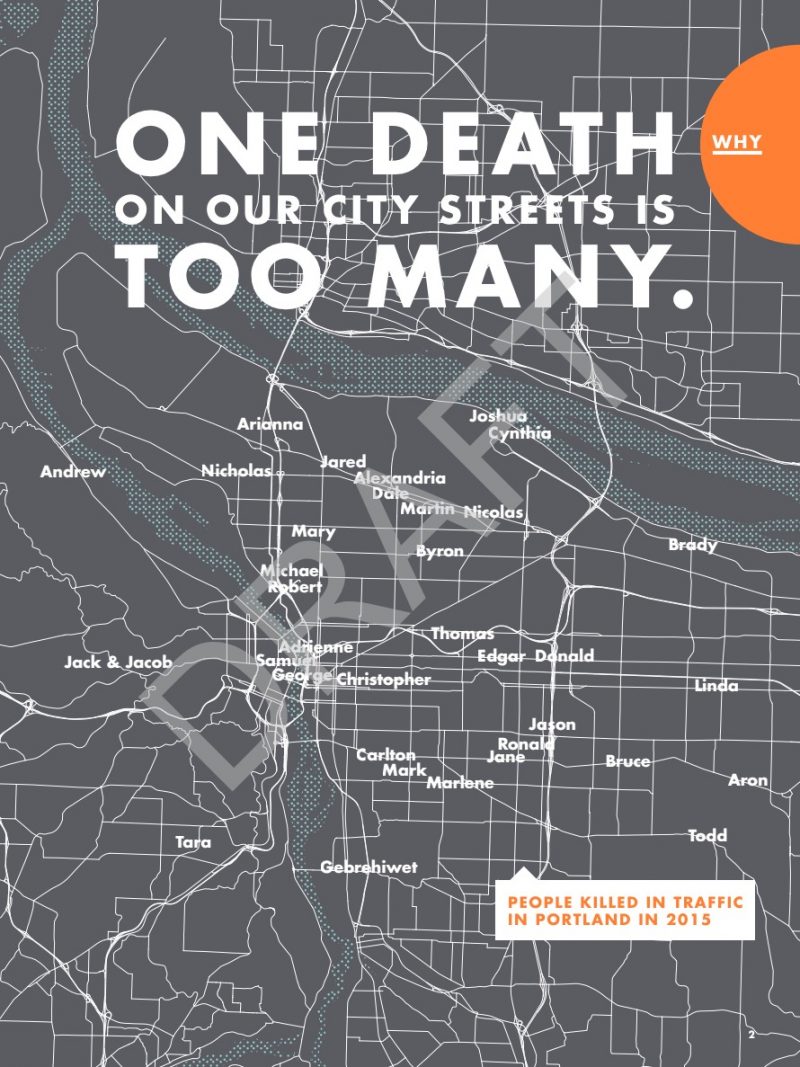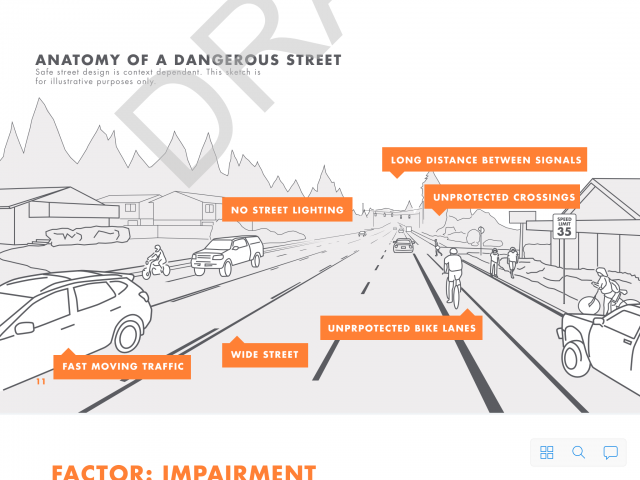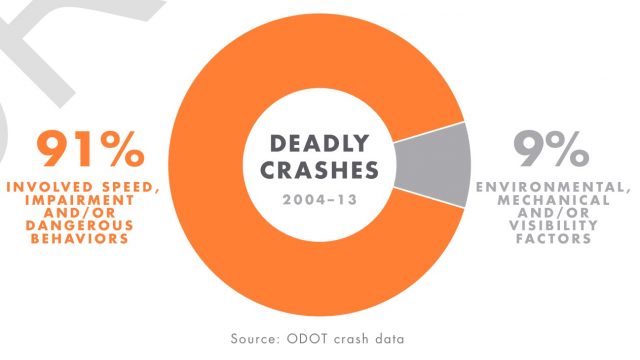Over one year after Portland City Council unanimously supported a commitment to Vision Zero, the task force assembled to help lead us there has released its action plan.
The 36-page document (PDF), still in draft form, contains the highest level of details ever shared by the Portland Bureau of Transportation about how they’ll completely eliminate deaths and serious injuries on our streets by 2025.
The main thrusts of the plan are equitable implementation, using data to drive decision-making, and holding the city accountable for its progress (or lack thereof).
One thing not prominently featured in the plan is the thing many people think should be the highest priority: more police enforcement.
PBOT is not hiding from this decision to de-emphasize enforcement. Here’s how they address it:
The enforcement action in this plan are limited in order to reduce the possibility of racial profiling and disparate economic impacts.
That statement follows a major shift in thinking about enforcement from national Vision Zero experts and racial justice activists. They make the case that the idea of “more police presence” can mean safety to some communities and fear and discrimination in others.
This reduction of prominence for enforcement comes despite the fact that of all the deadly traffic crashes between 2004 and 2013, 91 percent of them were due to speed, impairment or dangerous behaviors.
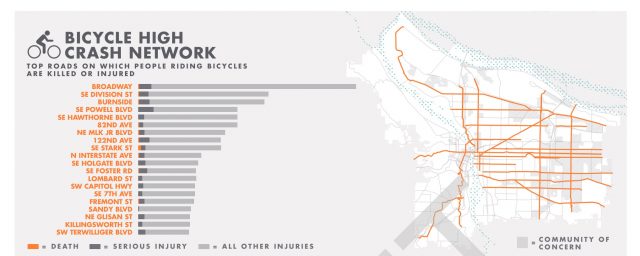
PBOT is also tying the need for safer street designs directly to “communities of concern” — that is, places with a higher rate of low income residents, seniors, people of color, people who are disabled, and so on.
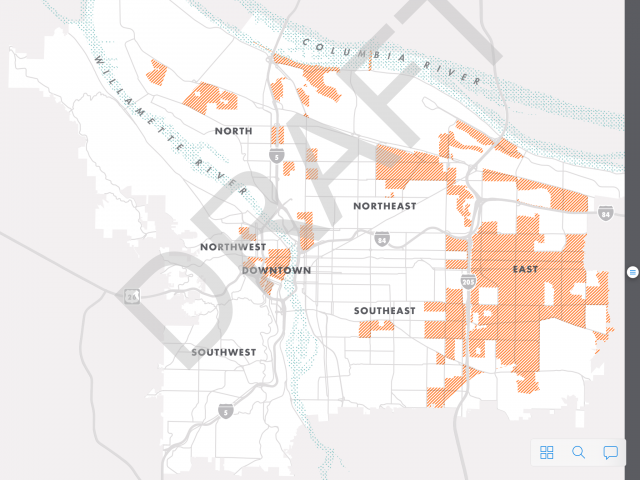
The action plan contains some strong words about the need for better street designs:
Streets should discourage dangerous driving by design… In areas of Portland where streets were built to move cars efficiently, they must be redesigned to move people safely.
All the actions in the plan regarding safer designs are focused on the city’s high crash corridor network — big and fast streets that have higher than average rates of deaths and injuries. 50 percent of Portland’s fatal crashes occur on just 7 percent of our streets.
When it comes to specific actions to address dangerous street designs, PBOT says they’ll begin capital projects on two sections and five intersections on high crash streets every year.
Where the money for these projects will come from remains to be seen. The action plan includes no budget or funding commitment.
PBOT also says they’re going to create a multi-agency fatal response team that will analyze how crashes happened and how to prevent them.
PBOT feels this plan will guide them toward our 2025 Vision Zero goal. “All too often,” reads one passage, “we as a community have accepted this [more traffic deaths than homicides each year] as an unfortunate but inevitable cost of moving around the city. Vision Zero rejects that assumption. With this action plan, Portland makes a clear statement that the cost is too high — and directs attention, commitment and resources to ending traffic violence in the city.”
The next step for the plan is to draft a final version and then get it passed by City Council sometime next month.
— Jonathan Maus, (503) 706-8804 – jonathan@bikeportland.org
BikePortland is supported by the community (that means you!). Please become a subscriber or make a donation today.
